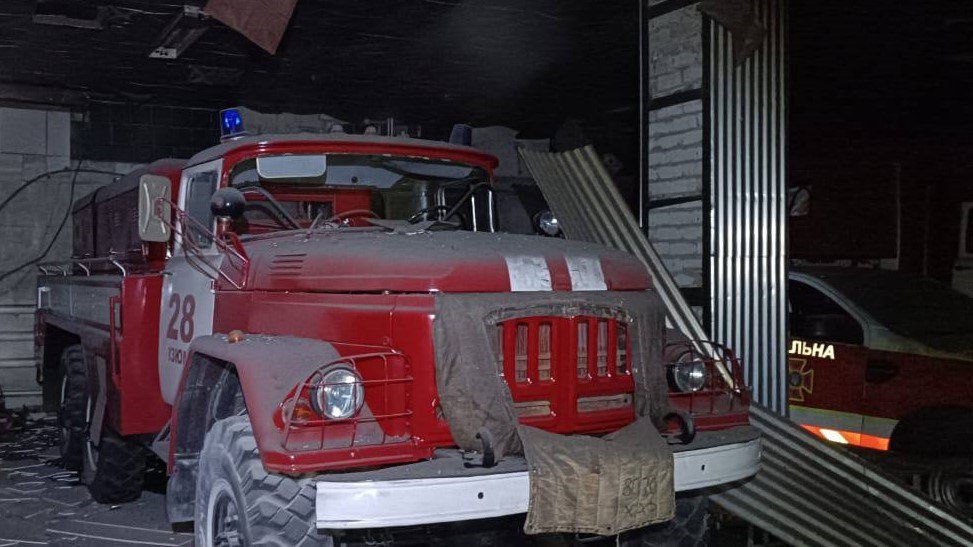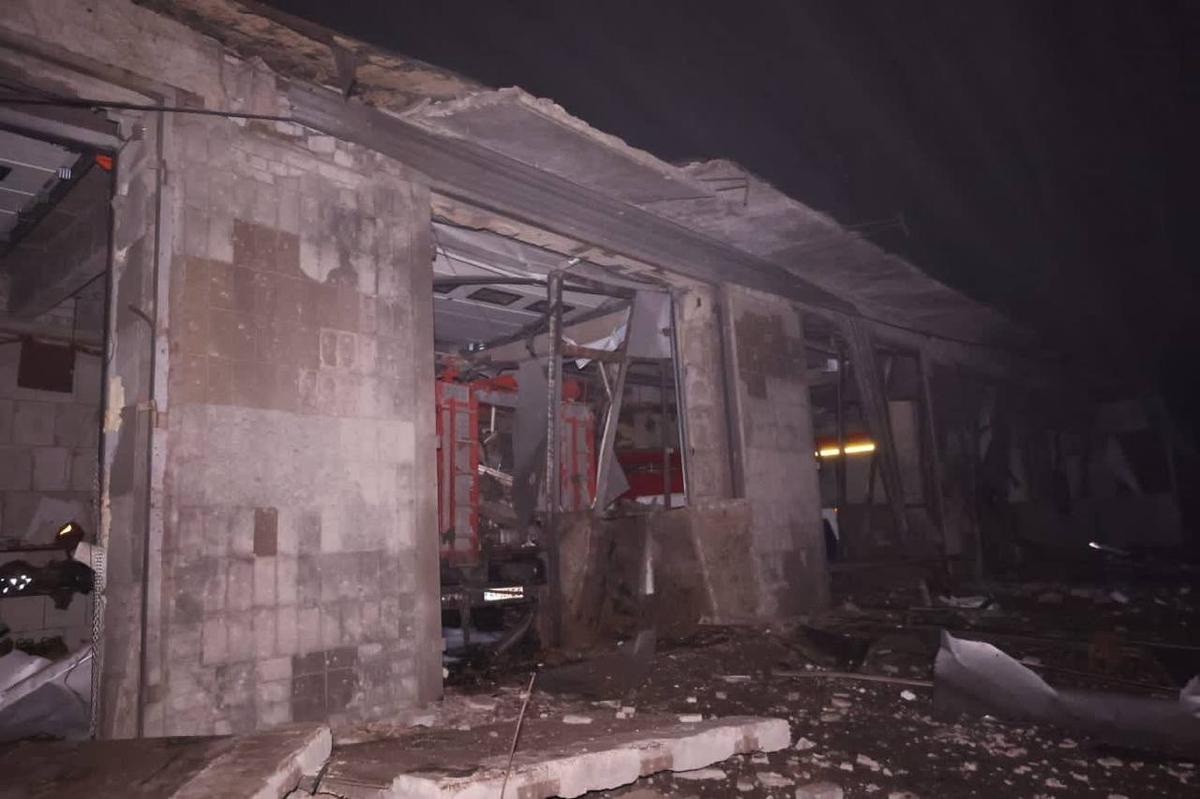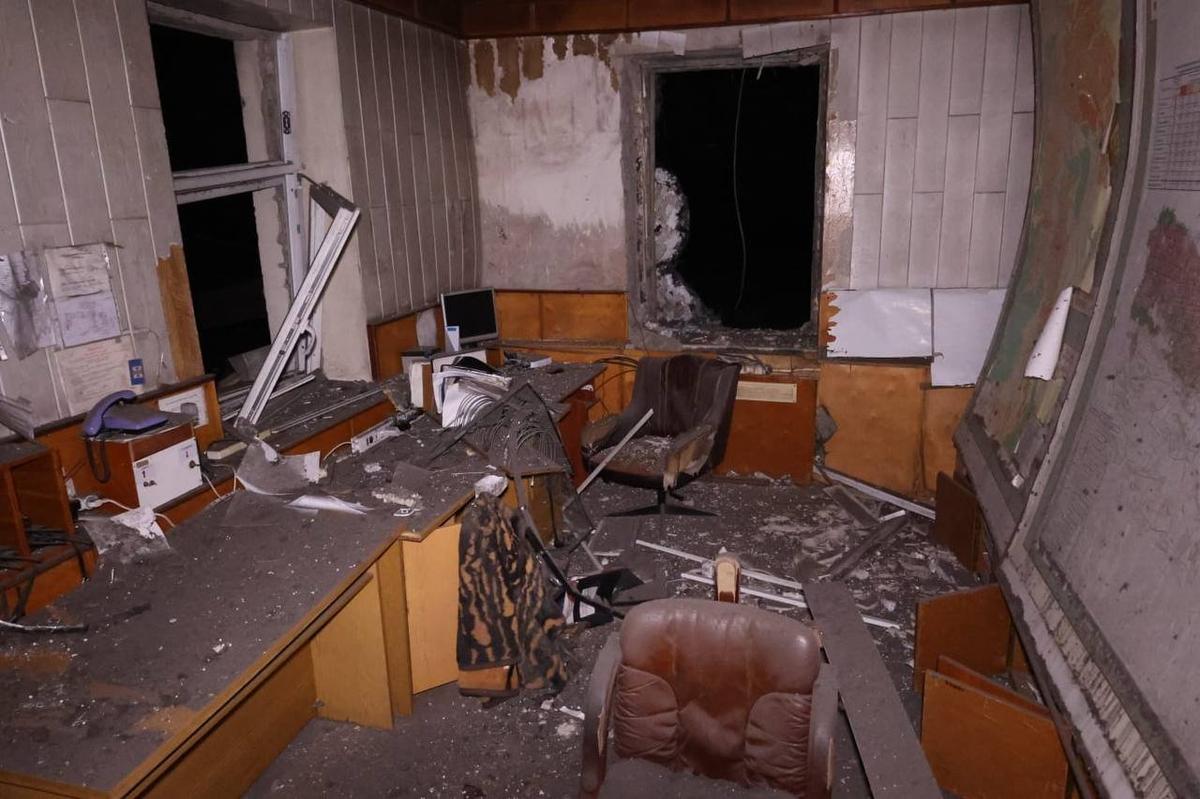
Aftermath of a Russian missile attack on a fire station in the Kharkiv region. Photo: Oleh Syniehubov/Telegram
It’s day 611 of the war in Ukraine. The Institute for the Study of War has estimated that the Russian military has lost even more equipment in its assault on the Ukrainian town of Avdiivka than it did during the battle for Vuhledar at the beginning of the year.
Hungary and Slovakia have opposed the allocation of €50 billion in aid to Ukraine from the EU budget, Politico reported on Friday.
Russian air defences downed two drones over the Kursk region overnight.
Novaya-Europe’s news roundup will brief you on the main developments overnight.
ISW: Russia has lost more equipment in its assault on Avdiivka than it did at Vuhledar
Military hardware losses suffered by Russian forces in their assault on the eastern Ukrainian town of Avdiivka are likely to undermine Russia’s long-term offensive capabilities in the war, the US-based Institute for the Study of War (ISW) said on Friday.
The Russian military lost at least 109 pieces of military hardware, principally armoured fighting vehicles and tanks, in the battle for the Donetsk region city of Avdiivka between 10 and 20 October, the ISW estimated, citing its study of satellite images.
Russia’s military command had deployed additional forces to the frontline near Avdiivka to offset its huge personnel losses and to maintain Russia’s ability to advance, the ISW said.
The Russian military’s heavy losses near the town of Vuhledar at the start of the year likely impeded its ability to engage in sustained mechanised attacks in other parts of Ukraine, it added, concluding:
“Recent Russian equipment losses around Avdiivka appear to be much larger than earlier equipment losses around Vuhledar.”
Russian Defence Ministry: two drones downed over the Kursk region
Russian air defences have intercepted two drones over the town of Kurchatov in Russia’s southern Kursk region, the Russian Defence Ministry reported on Friday.
The ministry, which said that the drones were launched by Ukraine, reported the first drone was downed at around 9 PM on Thursday, while the second one was intercepted at around midnight. No information about casualties or damage was provided.
Russian military strikes Kharkiv region
The Russian military launched a missile strike on a fire station in the city of Izyum, in eastern Ukraine’s Kharkiv region overnight on Thursday.

Aftermath of a Russian missile attack on a fire station in the Kharkiv region. Photo: the Ukrainian national emergencies service/Telegram

Aftermath of a Russian missile attack on a fire station in the Kharkiv region. Photo: the Ukrainian national emergencies service/Telegram
Eight firemen were injured in the attack, with four requiring hospitalisation, Kharkiv Governor Oleh Synehubov said on Friday, adding that multiple fire engines had also been damaged.
Politico: Hungary and Slovakia oppose EU’s €50 billion in aid to Ukraine
European Union leaders convened for a summit in Brussels on Thursday to discuss the conflicts in Ukraine and the Middle East, Politico reported on Friday.
Even though the war between Israel and Hamas took centre stage, the EU’s financial aid for Ukraine was also on the agenda.
European Council President Charles Michel said that a general consensus had been reached on the bloc’s long-term financial plans. However, Slovakia, fresh from electing populist Robert Fico as its prime minister, was joined by regular European outlier Hungary in opposing the allocation of €50 billion for Ukraine.
An unnamed EU representative told Politico that Fico had alluded to corruption in Ukraine in a speech to his fellow leaders, while Hungarian Prime Minister Viktor Orban argued that the EU support for Kyiv was not working.
The financial plan in question concerns aid to Ukraine over the next four years, which Brussels had been expecting to approve as part of its efforts to recalibrate the EU budget for 2024-2027. Any EU budgetary reviews require approval by all 27 members of the union.
